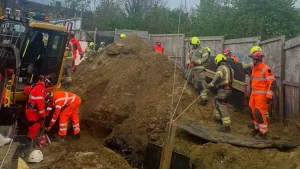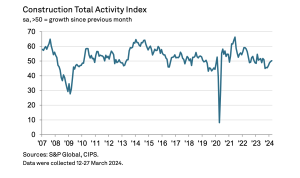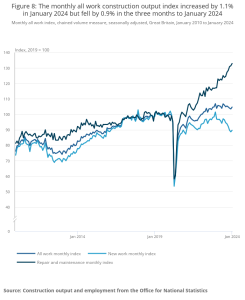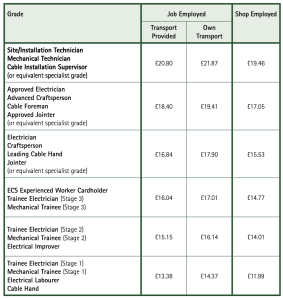Bricklayers earning over £1000 a week over brexit fears
This post has already been read 4370 times!
Bricklayers are taking home up to £1,000 a week as building firms compete for workers to keep UK infrastructure and housebuilding projects on track, according to a survey of construction recruitment firms by the Recruitment & Employment Confederation (REC).
More than six in ten recruitment agencies (63 per cent) say that demand for temporary construction workers has increased over the last year. Seven in ten (69 per cent) say that the shortage of bricklayers, labourers and other tradesmen is now the first or second most significant risk to their business.
More than four in ten firms (43 per cent) say that finding bricklayers is particularly difficult. Recruiters supplying London-based clients especially report rising wages as a result, with bricklayers earning between £15-25 an hour in the capital.
Looking ahead, construction recruiters predict that a vote to leave the EU would exacerbate the shortage of candidates. Fifty-nine per cent say that a Brexit would make it more difficult to find suitable workers to fill vacancies, while only five per cent believe the situation would be improved.
These finding follow the latest employment data released by the Office for National Statistics (ONS), which shows a year-on-year increase in wages in the construction sector of 7.5 per cent excluding bonuses. ONS data also reveals that in December 2015 there were 2,238,000 jobs in construction, making up 6.6 per cent of all jobs. The construction sector was the second biggest job creator last year, accounting for 25 per cent of job growth in 2015.
REC Chief Executive Kevin Green says:
“If you work in construction you can expect to be earning £34 a week more than last year, and our data indicates that some employers are increasing pay faster as the competition for skilled workers intensifies.
“Whilst this is great news for builders and tradesmen, there are hard questions that need to be asked about the sustainability of this trend. The UK is close to full employment and building firms are already struggling to find the people needed for major infrastructure projects. If Britain leaves the EU there’s no doubt that recruitment for some construction roles will become even more of a challenge.
“Whatever the outcome of the EU referendum we need to address deep-seated skills shortages. That means more apprenticeships, greater investment in skills development by employers, better careers guidance in schools, and more work experience opportunities so that young people are shown the potential benefits of a career in construction.”























Pingback: Skills shortages continues to drive tradesmen's wages up